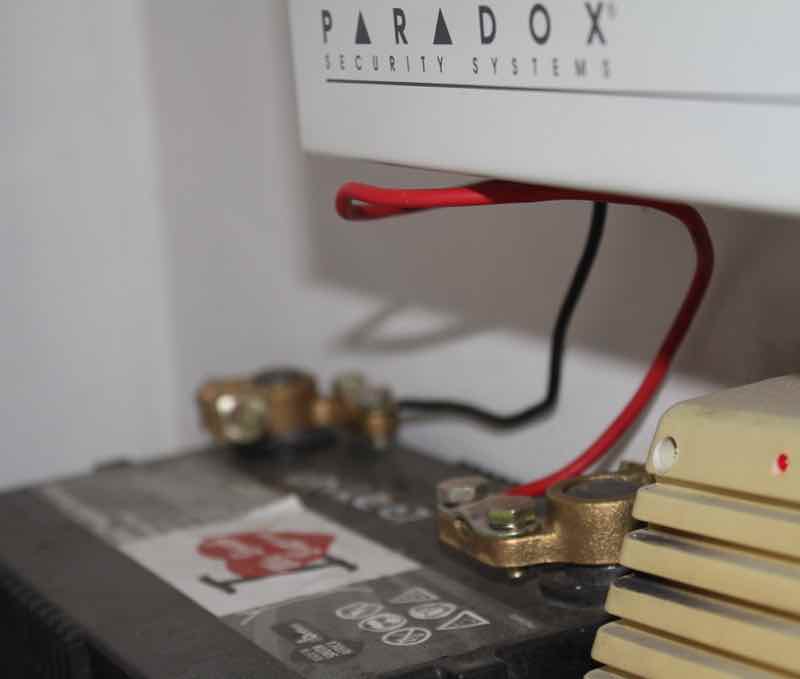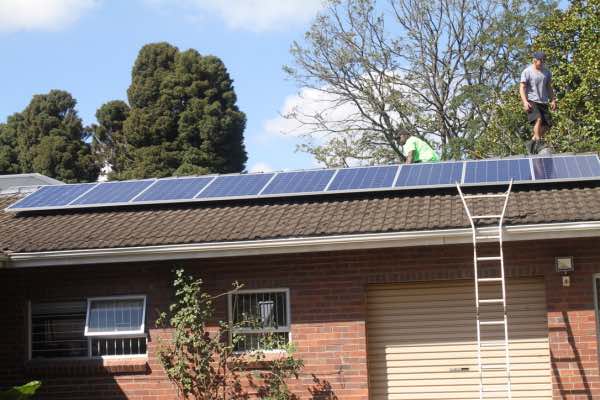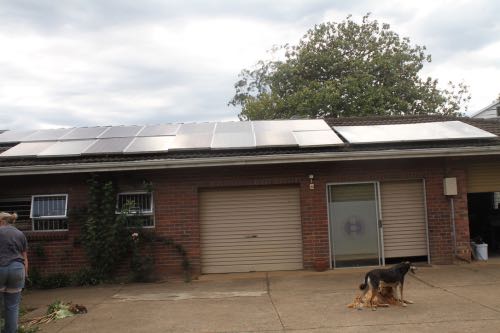- Bernard Preston homepage
- Our green home
- Load Shedding and Security Systems
Load shedding and security systems
Load shedding and security systems are directly connected; thieves know that loss of utility power for an extended period gives them opportunities.
Load shedding is a pain in the proverbial for all of those who have not yet gone solar; there are three strong suggestions that I would add to the excellent article by Byrone Athman in the Witness last Saturday.
Firstly whenever there is load shedding, immediately drop the mains-breaker and do not flip it up again for perhaps five minutes after the power has been restored; by which time the voltage should have stabilised. It’s during that short period that a huge amount of damage can be done to your electrical appliances; be patient and just wait for a few moments longer.
Brown-outs when the voltage drops as everyone starts drawing power the moment the grid is restored can do as much damage as a surge.

Secondly when grid power is lost, turn off your geysers; they put huge strain on the municipal transformer on your street when the electricity is restored.
Thirdly make sure the stove is turned off; many serious fires have started because people were unaware that an element had come on when the power was restored.
And fourthly do away with those horrible little gel-cell batteries for ever; they are expensive and they simply do not last if there is extended and frequent load shedding, as Athman reports.
It is true they are neat and fit
nicely into the little electrical-box, but that’s where their advantage
begins and ends. Today I would probably do this with a lithium battery.
But years ago we went to our favoured supplier and bought a 40Ah lead cell battery of the sealed type used in golf carts and motorcycles; they require no maintenance and give off no evil-smelling gases.
A good secondhand battery would be fine. Ask an electrician to fit it; it will last
for years and even if the grid fails for days, you can be assured your
alarm will be working properly. Ours shown in the photo above is still perfect.
These days a small lithium-battery has become available; for a price.
Power cuts are here to stay
alas, whether because of Eskom or municipal incompetence; or the
vagaries of wind and storm. The potential damage to your security
system and the possibility of a break-in are just two more reasons to
consider going solar.
There already is a second utility supplier, the one of choice in fact; his name is Mr Golden Sun. He is a giant nuclear power-station directing a massive amount of free energy towards your roof, with none of the worries of radioactive waste that Koeberg has to contend with; or a Fukushima disaster[2].
It’s true that grid can fail too when the mists sweep in for perhaps a dozen days in the year; you can revert to Eskom for your backup if you have a prepaid electricity account.
There really is no need to go off the grid unless you have exorbitant line-charges.
Sell your generator and log in to the big guy in the sky; we’ve been doing it for twelve years and not regretted the decision for one day. Go as big as you can afford from the very start; upgrading is needlessly expensive.
Load shedding and security systems
Load shedding and security systems demand a larger than normal gel-cell battery; and greater vigilance when the street lights go off.
Has the time come to go solar? R200,000 will buy you a very nice system. With Eskom demanding a 31% rise in price in 2023 it's worth a thought; in just two days it will be complete. Sell that horrid generator.
Our green solar power was the beginning of a most productive journey into a different focus for our family; one that also meant harvesting rainwater and an organic garden that produces over R100,000 of food every year.
Most important it has given us a renewed focus on our wellbeing. Blue Zone longevity is our passion; growing wholesome food, milling 100% meal for real bread and home-cooked nutritious meals.
We call it the green journey.

DIY
Could you do it yourself? Certainly if you are a handyman and are prepared to talk to those in the know.

I added those extra panels myself with the help of a friend; that's an extra 4kW.
There are many dilemmas of going solar; one is usually having too many panels on a sunny day but not enough when it's cloudy. Exporting to the grid is an option if you have a reliable utility company that does not send you unwelcome spikes and brown-outs.
An electric gate
An electric gate is also at the forefront of all security systems; but it too is subject to damage from utility surges. Our charger was burned out; the cost of repair was exorbitant. A better solution was a small solar panel and a larger battery which would last during inclement weather.
When browsing use right click and "Open Link in New Tab" or you may get a bad gateway signal.
What does load shedding mean?
Load shedding is really just a euphemism for grid failure; in South Africa it simply means that Eskom is unable to meet the demand for electricity. The utility is currently spending R100 million daily for diesel to make up the shortfall. It is bankrupting the country.
Newsletter
Our newsletter is entitled "create a cyan zone" at your home, preserving both yourself and Mother Earth for future generations; and the family too, of course. We promise not to spam you with daily emails promoting various products. You may get an occasional nudge to buy one of my books.
Here are the back issues.
- Lifestyle and ideal body weight
- What are ultra-processed foods?
- Investing in long-term health
- Diseases from plastic exposure
- Intensive lifestyle management for obesity has limited value
- A world largely devoid of Parkinson's Disease
- The impact of friendly bacteria in the tum on the prevention of cancer
- There's a hole in the bucket
- Everyone is talking about weight loss drugs
- Pull the sweet tooth
- If you suffer from heartburn plant a susu
- Refined maize meal and stunting
- Should agriculture and industry get priority for water and electricity?
- Nature is calling
- Mill your own flour
- Bake your own sourdough bread
- Microplastics from our water
- Alternative types of water storage
- Wear your clothes out
- Comfort foods
- Create a bee-friendly environment
- Go to bed slightly hungry
- Keep bees
- Blue zone folk are religious
- Reduce plastic waste
- Family is important
- What can go in compost?
- Grow broad beans for longevity
- Harvest and store sunshine
- Blue zone exercise
- Harvest and store your rainwater
- Create a cyan zone at your home
Did you find this page interesting? How about forwarding it to a friendly book or food junkie? Better still, a social media tick would help.
- Bernard Preston homepage
- Our green home
- Load Shedding and Security Systems
Address:
56 Groenekloof Rd,
Hilton, KZN
South Africa
Website:
https://www.bernard-preston.com